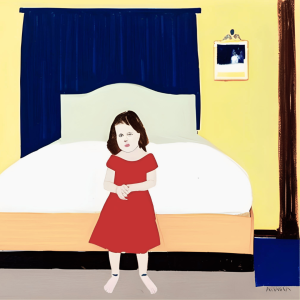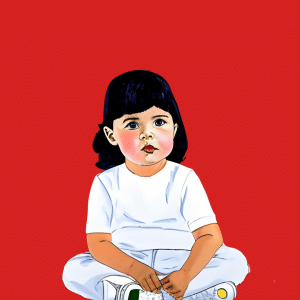 Coming up are the top 10 trigger signs of childhood trauma from neglect and ostracization and how to heal from the past so you enjoy a happier future.
Coming up are the top 10 trigger signs of childhood trauma from neglect and ostracization and how to heal from the past so you enjoy a happier future.
When most people think of their childhood, they remember skinned knees, that weird haircut their mom insisted on, or their first taste of candy.
But for some, childhood memories aren’t just tinted with nostalgia. They’re shrouded in a fog of neglect and the icy chill of ostracization.
Neglected. Ostracized.
Sounds heavy, right?
Here’s the breakdown:
- Neglect isn’t just about forgetting to pack a lunch. It’s the consistent absence of attention, care, or affection.
- And ostracization? It’s that feeling of being left out, kept at arm’s length, always the last to be picked for teams.
- Combine the two, and you have a cocktail of childhood experiences that can leave marks well into adulthood.
So, how do you know if that shadow in your past is just a regular ol’ bogeyman… or something a bit more real…true childhood trauma?
I’m here to help explain more about what childhood trauma is. Plus I’m going to share the 10 top trigger signs of childhood neglect and ostracization – and 4 strategies to heal.
I’m writing this guide because I’m a bestselling author on anxiety and leading Behavioral Change Coach – with about 2 million books sold globally.
Plus I founded the therapist recommended self-paced online course called The Anxiety Cure.
Coming up are the top 10 trigger signs of childhood trauma, the signs that maybe, just maybe, your inner child is waving a flag saying, “Hey, remember when this crap happened?”
10 Trigger Signs of Childhood Trauma From Ostracization and Neglect
Coming up are 10 trigger signs of childhood trauma from neglect and being ostracized. (I also wrote another article about being the family scapegoat – here.)
1. The Compliment Conundrum:
Someone praises your work, and instead of a simple ‘thank you,’ you’re on high alert. Research suggests that children who face consistent neglect often struggle with positive attention in adulthood. They just aren’t wired to accept it.
2. Trust Issues Level 1000:
People say trust is earned, but for you, it feels more like an extinct species. Childhood ostracization can cause severe trust issues, making every relationship feel like walking on eggshells. Plus, you might subconsciously choose untrustworthy people – because of the lure of the familiar.
3. Intimacy Fortress:
You have more walls up than a medieval fortress. And why? Because deep down, the neglected kid thinks letting someone in means giving them the power to ignore or discard.
4. The Validation Vacuum:
No amount of validation fills that void. It’s like pouring water into a sieve. Even when you succeed, you struggle with Imposter Syndrome. Studies indicate that early experiences of neglect can lead to an insatiable need for validation later in life.
5. Overachiever Overload:
You’re not just trying to win. You’re trying to annihilate any chance of being overlooked. Interestingly, a study in The Journal of Educational Psychology links childhood neglect with a compulsive need for achievement.
6. FOMO in All Areas of Life:
It’s not just events you feel you’re missing out on. It’s connections, relationships, life. That constant feeling of being on the outside stems from those early days of being the kid no one wanted to play with.
7. Emotional Spidey Senses:
That hyper-sensitivity? It’s not a flaw. It’s a defense mechanism. Research from Child Development suggests that ostracized children often develop heightened emotional sensitivity as a means to navigate their environment.
8. Lone Wolf Life:
Packs, squads, gangs – they’re for others. You? You’ve resigned to the lone wolf life, not out of choice but from a deep-seated belief rooted in early exclusion.
9. The Sting of Rejection:
Cancelled plans or a missed call isn’t trivial for you. It’s a spiral into self-doubt. It makes sense, though. As per a study from the American Journal of Psychiatry, childhood ostracization intensifies the fear of rejection in adulthood.
10. The Pursuit of Perfection:
That drive to make everything perfect isn’t ambition. It’s desperation. A plea from the past, saying, “If I’m perfect, they’ll notice. They won’t leave.”
Reminder: Recognizing these signs isn’t about playing the blame game.
It’s about understanding, empathizing, and acknowledging the resilience it takes to navigate life with these shadows. The scars of childhood neglect and ostracization aren’t badges of shame but marks of strength. It’s never about what happened to you. It’s about how you rise above it – tweaking one “trigger healing” at a time.
4 Ways To Heal from The Childhood Trauma of Neglect and Ostracization
 Alright, let’s cut to the chase.
Alright, let’s cut to the chase.
Realizing that your childhood was more “Home Alone” minus the fun hijinks and more emotional ghosts can be a kick in the gut.
But just because your past had a few plot twists ….doesn’t mean your future can’t be happy and peaceful.
Here’s how you can move on from your trauma and start rewriting your life story.
1. Re-parenting: Because Your Inner Kid Deserves Better
Here’s the lowdown: Re-parenting is about being the parent to yourself that you never had. It’s hugging that inner child, buying them an ice cream, and telling them they matter. A study in the Journal of Personality Assessment found that self-compassion, a key component of re-parenting, significantly reduces trauma symptoms. So next time that voice in your head starts with the “you’re not good enough” chant, try switching the tune to “I’ve got your back, kiddo.”
2. Attachment-Based Therapy: It’s Like Relationship Bootcamp
Your childhood neglect might’ve messed up your attachment style, making relationships feel like navigating a minefield. Attachment-based therapy focuses on understanding these styles and building healthier bonds. Research from the Journal of Clinical Psychology suggests that addressing and understanding attachment styles can lead to profound healing, especially for those with neglect in their backstory.
3. Grounding Techniques: When Past Ghosts Haunt, Tell ‘Em to Sit Down
Ever felt like you’re floating away on a cloud of anxiety or past memories? Grounding techniques pull you back to the here and now. A review in Frontiers in Psychiatry showcased the efficacy of grounding exercises in treating trauma. Whether it’s the 5-4-3-2-1 technique (name 5 things you can see, 4 you can touch, and so on) or just focusing on your breath, it’s about telling those past ghosts, “Not today, mate.”
4. Join a Tribe: Because Shared Pain Can Be Halved Pain
There’s power in numbers, and healing isn’t a solo journey. Support groups or therapy groups focused on childhood trauma offer a space where understanding meets validation. A study published in the American Journal of Community Psychology emphasized that group therapy can offer trauma survivors a sense of community, reducing feelings of isolation and amplifying healing.
Conclusion
The unfortunate truth is: Life didn’t hand you the easiest of cards. But healing isn’t about changing the past. It’s about harnessing its lessons for a better present and future. It’s a blend of science, support, and a bit of that self-love magic.
And remember, it’s okay to ask for help. Even Batman had Alfred. Who says you can’t have a sidekick on your journey too? With this in mind, I encourage you to explore working with me in 1 on 1 coaching sessions to strengthen your mindset.
Get More Support to Heal Childhood Trauma
Explore my therapist recommended audio and video course: The Anxiety Cure.
P.S. Before you zip off to your next Internet pit stop, check out these 2 game changers below - that could dramatically upscale your life.
1. Check Out My Book On Enjoying A Well-Lived Life: It’s called "Your To Die For Life: How to Maximize Joy and Minimize Regret Before Your Time Runs Out." Think of it as your life’s manual to cranking up the volume on joy, meaning, and connection. Learn more here.
2. Life Review Therapy - What if you could get a clear picture of where you are versus where you want to be, and find out exactly why you’re not there yet? That’s what Life Review Therapy is all about.. If you’re serious about transforming your life, let’s talk. Learn more HERE.
Think happier. Think calmer.
Think about subscribing for free weekly tools here.
No SPAM, ever! Read the Privacy Policy for more information.
One last step!
Please go to your inbox and click the confirmation link we just emailed you so you can start to get your free weekly NotSalmon Happiness Tools! Plus, you’ll immediately receive a chunklette of Karen’s bestselling Bounce Back Book!


 Coming up are the top 10 trigger signs of childhood trauma from neglect and ostracization and how to heal from the past so you enjoy a happier future.
Coming up are the top 10 trigger signs of childhood trauma from neglect and ostracization and how to heal from the past so you enjoy a happier future. Alright, let’s cut to the chase.
Alright, let’s cut to the chase.